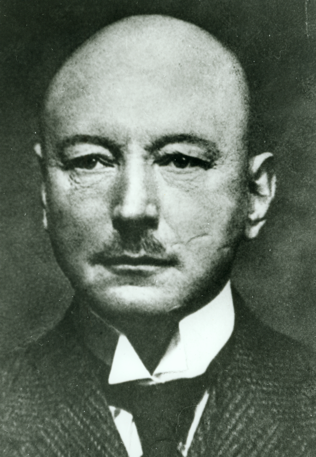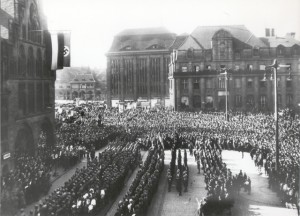
Attorney Arnold Reese
Documents showing that laws which governed official executions were insufficient under Hitler’s regime, have surfaced for the first time. Instead of beheadings being conducted by the official executioner, they were carried out by low level “in-house” personnel. Forming part of the exhibition “Justice in National Socialism” in Dortmund, the historian Dr. Susanne Mauss discovered this unseen archive. It was the manner in which the Nazis defined jurisprudence which gave the legal profession an alibi for their crimes. After the 1934 murders of opponents and party rivals, Carl Schmitt, the official Third Reich state legal expert said: “The Führer protects the law…when he momentarily and instantaneously creates law thanks to his leadership power and as senior legal counsel.” It was this way of thinking that facilitated the extension of capital crime to include everything from petty theft to political oppos
ition and which led to the official executions of over 16,000 people between 1933-1945.
Dortmund, January 1945. After 12 years the reign of the Thousand Year Reich is drawing to a close. Five people are to be executed on January 5 using the permanent guillotine in what was once the metalwork workshop of the Dortmund remand prison, known locally as the “Lübecker Hof”.
Troupe of amateurs
May 1943. Dortmund is chosen as the location for the execution of prisoners sentenced by the Hamm district Special Court and as a “back-up” for Cologne Prison, an authorized execution site. At least 305 people were executed in Dortmund until January 5, 1945. What is peculiar about these executions is the order from the Dortmund District Attorney, Arnold Reese. He declaired that the beheadings should be carried out by a “Troupe of amateurs”.
Cologne’s official hangman Mühl is unable to arrive in Dortmund on January 5 due to Allied bombings, so Reese goes beyond his powers and orders the executions go ahead anyway. The beheadings of four men and one woman take place between 4:03 and 4:16 in the afternoon. Paul Alker, Paul Kaps and Luise (Lissy) Johanna Rieke, members of the communist resistance group “Knöchel-Seng”, are condemned to death for “conspiring to commit treason”. The Polish forced-laborer Anton Fedak is condemned for murder and Franz Schur, a miner from Bottrop, is killed for looting a child’s blanket, two pairs of boots and a shoe brush. There is evidence that the chief prison guard at the Dortmund remand prison, Bücker, stands in for the Cologne hangman in the case of Franz Schur.
Reese wrote the Justice Minister the following day on January 6, 1945: “The executions were carried out by officials from the remand prison (UHA). According to the con
curring reports of the official in charge and the prison’s management, the executions – 5 in total – all passed without incident. The officials showed they were able to step up to the job. […] I would ask that this procedure be retroactively approved. In my view, it demonstrates that it is possible to carry out these sentences using officials from the UHA. This would be desirable in the interest of speeding up the process of execution.” Whether or not the Justice Minister approved the petition could not be established. In any case, these five executions are the last to be carried out at Dortmund prison.
Witnessing executions
Despite his age, Arnold Reese (1880-1945), who was known in Dortmund as a “fanatical National Socialist” (he joined the NSDAP and SA in 1933), used “to walk around in his SA uniform whether the occasion called for it or not”. By April 1944 he had become a sergeant major in the SA (Haupttruppführer). His political file from 1935 claimed that: “In all his public and private behavior as well as the manner in which he processed political crimes, he has always demonstrated a genuine connection with the nation and state.” In this s
pirit Reese rejected a 1942 plea for clemency from a trader who had been sentenced to death: “The condemned is clearly an example of a war profiteer and unscrupulous racketeer. […] This man who, according to the experts involved is a completely inferior person, presents a particular danger to the general public. He must therefore be eradicated to protect the integrity of the nation, furthermore, the deterrent effect of the execution on other similarly minded elements is urgently required.[…]I therefore recommended that justice is allowed to take its course.”
Reese became notorious not only because he denunciated Paul Koch, the Chief Justice of Dortmund, for “Sedition” but also through his intense interest in executions; which he often personally witnessed.
Reese committed suicide in April 1945 as the American troops entered the city (official cause of death: stroke). After an appeal in 1951, his widow was eventually granted 70 % of his pension. Arnold Reese was classed at Level III of the denazification system, a “Lesser Offender”…

